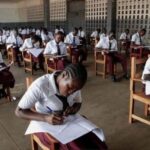
The World Organisation for Early Childhood Education, Nigeria, has promised to assist disadvantaged and less privileged children have unhindered access to quality education at low or no cost.
The NGO, during its 35th Annual National Conference held at Ikeja, Lagos, titled, ‘Quality and inclusive early childhood and care: Scaling education for sustainable development,’ opined that the key influence to education was the quality of teachers.
Speaking at the conference, the President, Early Childhood Association of Nigeria, Prof. Babajide Gboyega, said that investing in education would help communities to achieve the Sustainable Development Goals related to education.
Babajide said, “Education can be used to eradicate or reduce poverty. It must be recognised and used as a tool to discover and rectify societal inequities, with social and environmental justice at the forefront.”
The NGO’s Nigeria president, Mrs Olatokunbo Doherty, while delivering her welcome address stated that the ongoing project named, ‘Activity Based, Low Cost, No Cost, Initiative: Waste to Experiential Play, Learning and Development: Promoting Education for Sustainable Development,” was to equip the teachers.
“The objective of the project is to equip our teachers with skills to apply experiential learning in the classroom. They do this with the use of materials in their environment at little or no cost.
“Whether a child is in an urban or rural area, they can creatively apply local materials to every aspect of the curriculum to enhance their learning. It has been a great success across many schools in Nigeria,” Doherty said.
A keynote speaker, Vice-President, OMEP Africa, Mrs Nyamike Kyiamah, who spoke on ‘Escalating ESD in Early Childhood Education through integration of evidence-based strategies,’ said, “OMEP has not only followed with interest the evolution of the concept of sustainability but has also been a pioneer in addressing this issue in the most urgent, timely and holistic possible.”
National Secretary, Mrs Oyindamola Sonola, said, “Quality without access will lead to inequality and exclusion; access without quality will limit the potential and will not bring about the desired results.”




